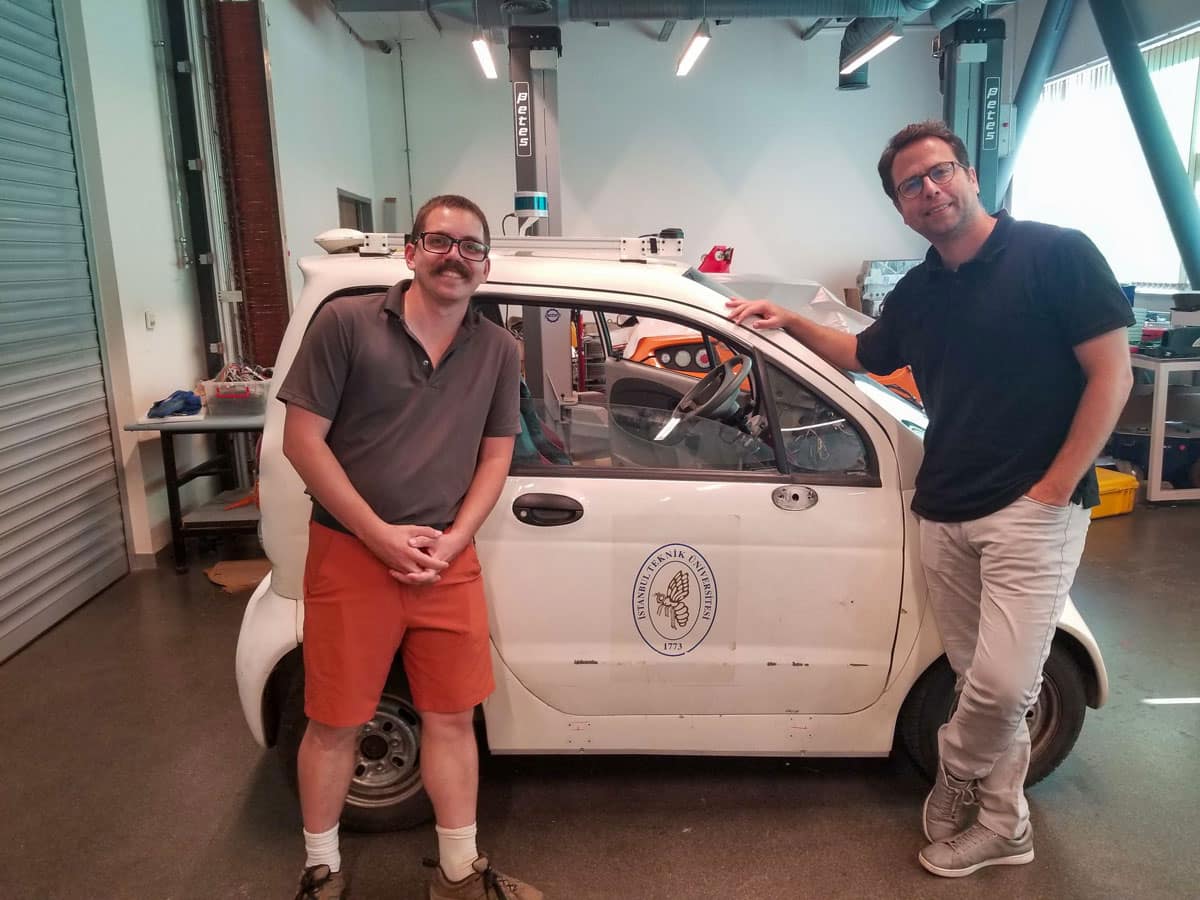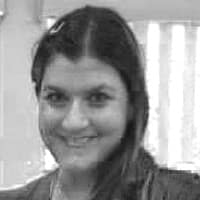Embry-Riddle Engineering Students Take AI-Driven Autonomous Vehicle Research Global in Turkey

Ph.D. student John M. Thompson has spent the last five years doing research at Embry-Riddle’s College of Engineering, but this past summer he had the unique opportunity to collaborate on AI-based autonomous vehicle research in Istanbul, Turkey.
Thompson — along with Ph.D. student Quentin Goss and undergraduate student Ryle Traub — was selected for a National Science Foundation (NSF) International Research Experience for Students (IRES) program hosted at Istanbul Technical University’s E-Mobility and Autonomous Vehicles Lab. Led by professors from the City College of New York, the 10-week fellowship is funded by the NSF and covers all student expenses, plus provides a stipend.
“This was my first time traveling outside the U.S., so it was pretty exciting,” said Thompson, who also works as a data science engineer at Universal Orlando. “I collaborated closely with international researchers and learned about new areas to explore, problems to solve and interesting ways to solve them.”

Ph.D. student Goss and Dr. M. Ilhan Akbas, associate professor in the university’s Department of Electrical Engineering & Computer Science, stand in Istanbul Technical University E-Mobility Lab. (Photo: Embry-Riddle/Quentin Goss)Thompson, Goss and Traub are all part of the Flexible & Intelligent Complex Systems research group, led by Dr. M. Ilhan Akbas, an associate professor in the Department of Electrical Engineering & Computer Science at the Daytona Beach Campus.
“I found out about the program through Dr. Akbas, who put me in contact with one of the professors at ITU,” said Traub, a senior Computer Science student. “It felt like the perfect opportunity to do something hands-on in AI and robotics while also getting to experience life abroad and a completely new culture.”
The NSF IRES program gives students an immersive, real-world research experience with faculty mentors, postdoctoral researchers, graduate and undergraduate students from the U.S., Europe and Turkey, said Akbas. They worked with Dr. Seta Bogosyan, a University of Alaska professor affiliated with CUNY, and Dr. Metin Gokasan, an ITU professor.
“Through the program, students not only gained hands-on experience, but also built global professional networks and developed research collaborations that extend beyond the program,” said Akbas.
For Thompson, whose research focuses on performance mapping and decision-making for autonomous vehicles, the fellowship enabled him to build the foundation for a joint paper with collaborating researchers on mixed-reality-based validation and testing.
“We have created some plans for a collaborative project in the spring, which will continue our work from this past summer,” said Thompson, who earned his bachelor’s and master’s degrees in Software Engineering at Embry-Riddle.
Goss has spent the past decade working with Akbas on autonomous vehicle research, but the NSF IRES provided his first opportunity in an international arena. Nearing the end of his dissertation, he was able to apply his AI and machine learning validation framework to an autonomous vehicle behavior model — developed by another collaborating researcher —that introduced real-world limitations and challenges.
“We primarily worked with professionals at Istanbul Technical University,” said Goss, who had never been overseas before. “So, I was able to network with those in my field, including those who had more of a hardware and electrical focus, as compared to my focus on software.”
Goss’ research specializes in the testing process for autonomous vehicles. As an intern through the Florida University Space Research Consortium, he is currently working on a software simulation traffic model for NASA’s Kennedy Space Center.
Meanwhile, Traub was tasked with physically making the cars drive autonomously using machine learning. Gaining experience in robotics and modeling, he built a complete perception-based algorithm to drive a fully autonomous vehicle that avoided both moving and stationary objects.
“Beyond the technical side, it was also amazing to experience the culture of Turkey — the food, the people, and the balance between work and life there,” said Traub. “We’d work hard during the week and then explore new places on the weekends.”
The NSF IRES experience also shifted Traub’s future career goals from working in web development to robotics and AI, especially in the field of autonomous systems.
“I realized how much I enjoy the combination of perception, real-world interaction and machine learning,” said Traub. “I think robotics and AI are going to be massive in the future, and I want to be a part of it.”

 Melanie Stawicki Azam
Melanie Stawicki Azam